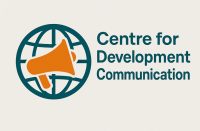Sixteen-year-old Paulina and her mother Ladi Ahmed, are living on breaking rocks and selling them.
At Ushaffa village in Bwari Area Council in Abuja, the capital city of Nigeria, numerous women break rocks and make money from it; literally a very hard way of earning between N5,000 to N10,000 a day, if they sell rock chips.
Many of them have been in the business of manual rock decomposition for over 7 years. This is a very prominent feature of many northern Nigerian towns, where the Hausa word Dutse (meaning rock) has become the name of a number of settlements.
Some districts are known as Kwari, adapted from a mispronunciation of the adjectival noun “Quarry”.
Most of the women adopt a traditional technology that involves heating the rock with surface fire all through the whole night to create cracks in the rock, to make it easy to use chisels and sledgehammers to chink the rock.
At a local quarry site in Lugbe, one of the satellite towns in Abuja, a large number of women and children engage in breaking rocks. They use sledgehammers to bang the rocks into smaller particles according to customers’ or builders’ demands.
The products include dressing stones, chippings, hardcore, and other varieties.
The community miners have put in place quarry association and are producing these products in tons. They sell the products at the price of N35, 000 for a pick-up van, N75, 000 for a single tipper, and N120, 000 for a double tipper.
Hardcore stones are marketed at the price of N10, 000 and N20, 000 for single and double tippers, respectively.
But the business spreads beyond northern Nigeria to far south as Akwa Ibom State where women at Udo Udoma Street in Uyo make N70, 000 or more in a weekly sale and N3,000 to N5, 000 daily.
But this laborious method of making money has health implications for the women not to talk about the environmental consequences.
Many of the women have developed chest pains, joint pains, and eye problems.
Rock breaking affects the health as silicon crystalline, that comes out of the stones at the process of breaking it, irritates the skin and eyes when contacted, inhalation of dusty particles when breaking is likely to cause irritation to the lungs and mucus membrane and put the women and children that break rocks at the risk of TB and asthma and these are also likely to lead to their untimely death.
Uncontrolled destruction of rock formations degrades the land; numerous pits have emerged in these manual and often unregulated quarry sites. These pits are dangerous to residents of the area.
Children often swim in them during the raining season as water lodge in the pits. In Nasarawa State, Nigeria, for instance, there have been numerous cases of children that drowned when swimming in the pits. The pits are also death traps as those that do not know that they exist run into them.
But is this a venture that is likely to stop in the coming years? It’s not likely. The prevalence of poverty in most communities in West Africa is a huge push factor. A mono-economy like Nigeria that concentrates all its efforts on petroleum has shown little or no interest in other mineral resources.
If more efforts are put into checkmating illegal mining, attention would spread onto quarrying. Only then would it be likely that government engages in skills development and enlightenment of these largely uneducated and unskilled women either so that they will explore other alternative means of making money or practice healthier and more efficient methods.
